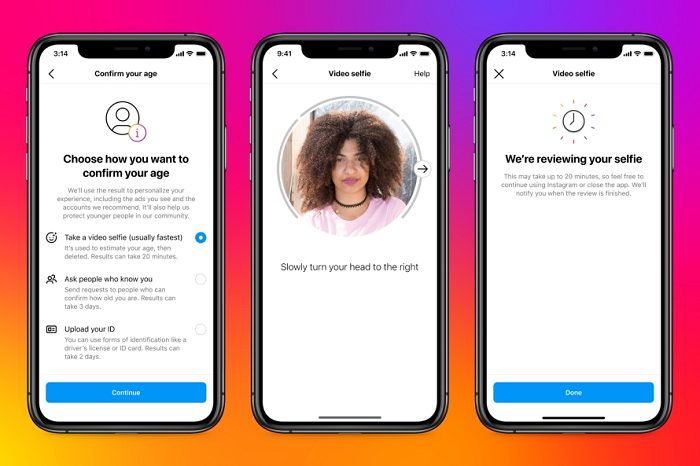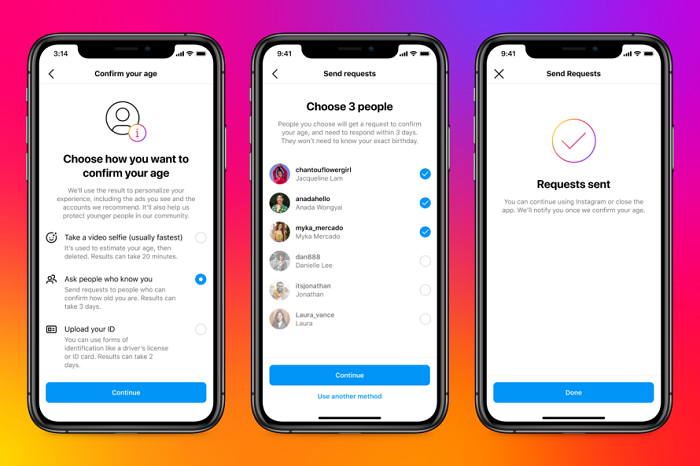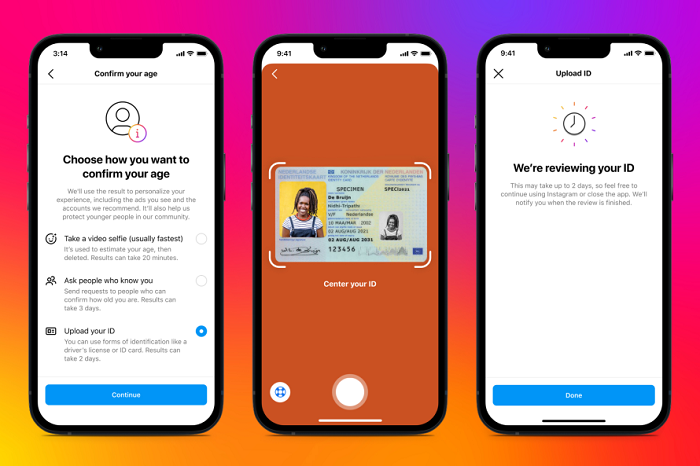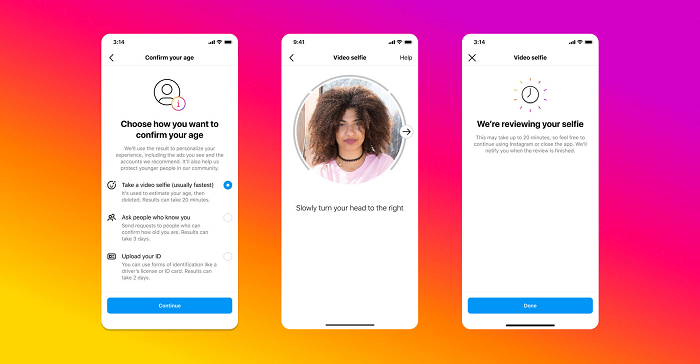Amid ongoing concerns around how social apps expose teens to inappropriate content, Instagram has announced some new measures to ensure that youngsters are being adequately identified in the app, building on its existing tools to detect and protect younger users.
As explained by Instagram:
“Starting today, we’re testing new options for people on Instagram to verify their age, starting with people based in the US. If someone attempts to edit their date of birth on Instagram from under the age of 18 to 18 or over, we’ll require them to verify their age using one of three options: upload their ID, record a video selfie or ask mutual friends to verify their age.”
The expanded effort will significantly enhance Instagram’s capacity for identifying underage users, with the main enhancement being a new video selfie process, in partnership with Yoti, which can provide AI-based estimates on a person’s age.
As outlined in the video, Yoti’s system is trained on a huge dataset of anonymous images of a diverse range of people from around the world. Based on this, Yoti’s process is able to accurately estimate a person’s age from a video selfie by referencing a range of parameters.
That’ll provide an extra level of protection within Instagram’s systems, in cases where there’s a question about a user’s age.

Yoti is already a leading age verification provider for several industries around the world, and the additional checking process is a significant upgrade in Meta’s tools.
And as Meta notes (repeatedly), it won’t keep your video selfie on file, neither will Yoti, so your privacy will be protected in this process.
In addition to this, Meta’s also adding a new ‘social vouching’ feature to confirm user ages.
“[Social vouching] allows you to ask mutual followers to confirm how old you are. The person vouching must be at least 18 years old, must not be vouching for anyone else at that time and will need to meet other safeguards we have in place. The three people you select to vouch for you will receive a request to confirm your age and will need to respond within three days.”

Meta once had a similar system in place for re-accessing locked accounts, with ‘Trusted Friends’ able to confirm your identity. That’s since been depreciated, but this new process will use a similar system to confirm a users’ age, adding another layer of confirmation.
The final new measure is the capacity to upload your ID to verify your age.
“We will use your ID to confirm your age and help keep our community safe. Your ID will be stored securely on our servers and is deleted within 30 days.”

Meta’s very keen, again, to point out the temporary nature of this type of data upload and usage – which makes sense, given the various misuses of personal data that’s been uploaded for similar purpose.
On top of all this, Meta also uses AI systems to understand whether someone is a teen or an adult.
“AI helps us prevent teens from accessing Facebook Dating, adults from messaging teens and helps teens from receiving restricted ad content, for example. Our goal is to expand the use of this technology more widely across our technologies.”
In combination, this is a robust series of checks for underage users, and while it won’t completely stop youngsters from logging into its apps, it will limit the capacity for underage users to gain full access to Meta’s platforms, which could be a big step in combating this key issue.
As noted, various investigations have found that social media platforms, including Instagram, can be harmful for young users, in various ways, while underage usage can also expose kids to predators and inappropriate content.
Those issues have been exacerbated over the last two years, with the pandemic lockdowns forcing more kids online for entertainment and social connection. And with parents also working from home, it’s almost impossible to be monitoring what your child is up to all of the time.
Additional measures like this are a significant and important step, and again, while it won’t stop every youngster from cheating the system, the combined effort will limit the capacity for kids to cheat their way into Meta’s apps.
The next question, then, is whether these new tools will re-open discussion of an ‘Instagram for Kids’, which Meta was working on last year, but shelved after Frances Haugen’s ‘Facebook Files’ leak.
The concern, at the time, was that giving youngsters a dedicated pathway into Instagram would only exacerbate potential harms, and lead more kids into the main IG app – but maybe, with enhanced age checks in place to offer more protection, that could give Meta another pathway to exploring this project in a more acceptable, safer way.
We’ll see where it goes, but Meta had been very keen to pursue this idea.



